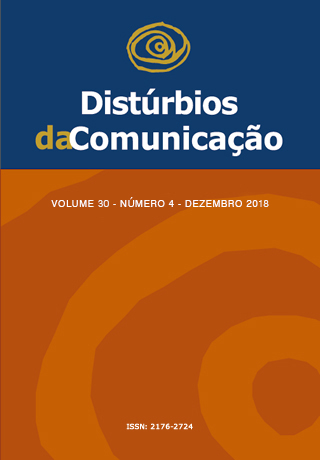The influence of sociocultural and biological variables on the performance of receptive language in preschool children
DOI:
https://doi.org/10.23925/2176-2724.2018v30i4p705-712Keywords:
Child Development, Language, Preschool.Abstract
Introduction: Child development consists of a process of continuity and change in several interdependent domains. Receptive language, in turn, becomes important in the development of communication, because through it the child develops phonological awareness skills, conversation behaviors, among others. Objective: To verify the influence of socio-cultural and biological aspects on the receptive language performance of pre-school children. Methods: Thirty children in the 24-36 month age group participated in the study duly enrolled in the maternal I of two municipal centers of early childhood education. A questionnaire prepared by the researchers was applied to the collection of biological, economic and social data of the sample. Children with hearing, neurological and / or visual impairment were excluded. To verify the development of the language was applied the proof regarding the receptive language of the Bayley III Scale of Child Development. The Bayley score was correlated with social and biological variables in the present study. Results: In the Bayley III scores, 63.33% (n = 19) children were below the mean of the receptive language test. The variables family income and sex and the receptive language score were statistically significant. Conclusion: The performance of the preschool language was lower than expected for the age group according to the scores obtained in Bayley III. It can be considered that biological aspects are recognized as a precondition for language acquisition and development while environmental aspects are determinant aspects for the quality of language skills.Downloads
Download data is not yet available.
Downloads
Published
2018-12-12
Issue
Section
Artigos
License
Copyright (c) 2018 Carol Pedrosa Monteiro Virtuozo, Maria Cecilia Marques, Cristiane Pedruzzi Monteiro

This work is licensed under a Creative Commons Attribution 4.0 International License.









